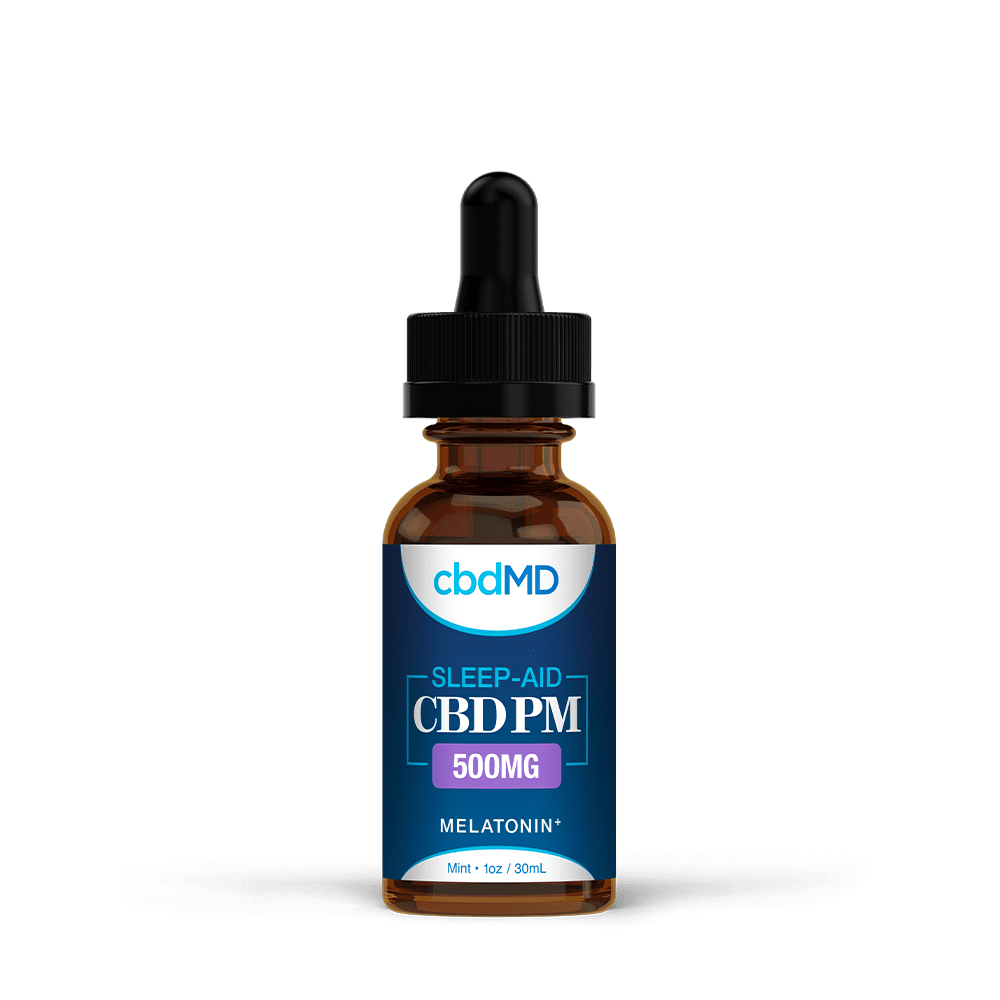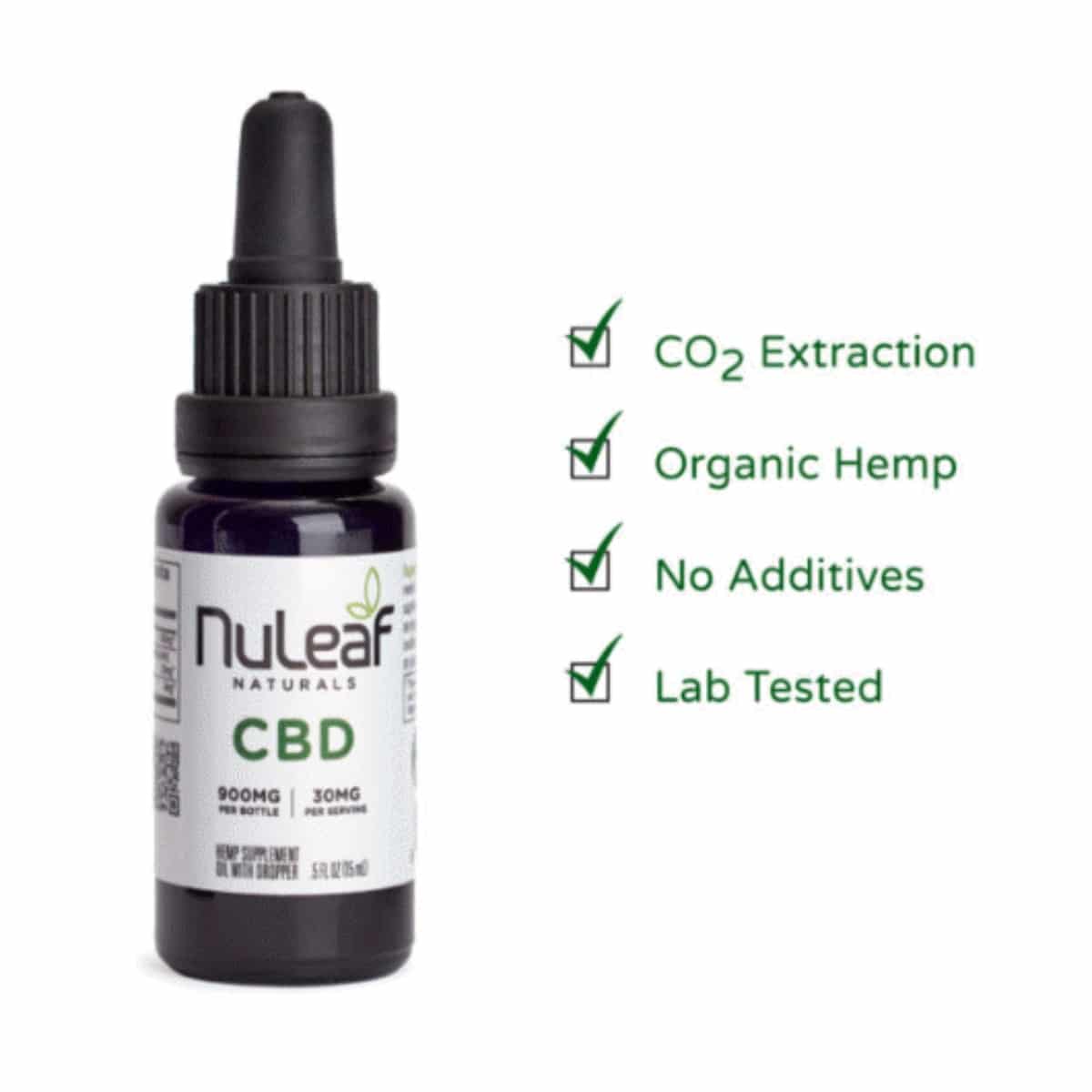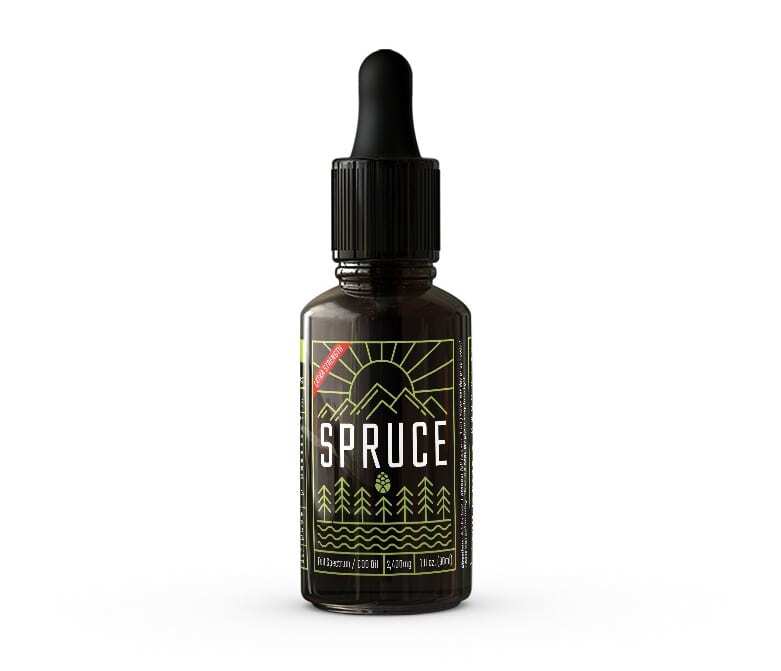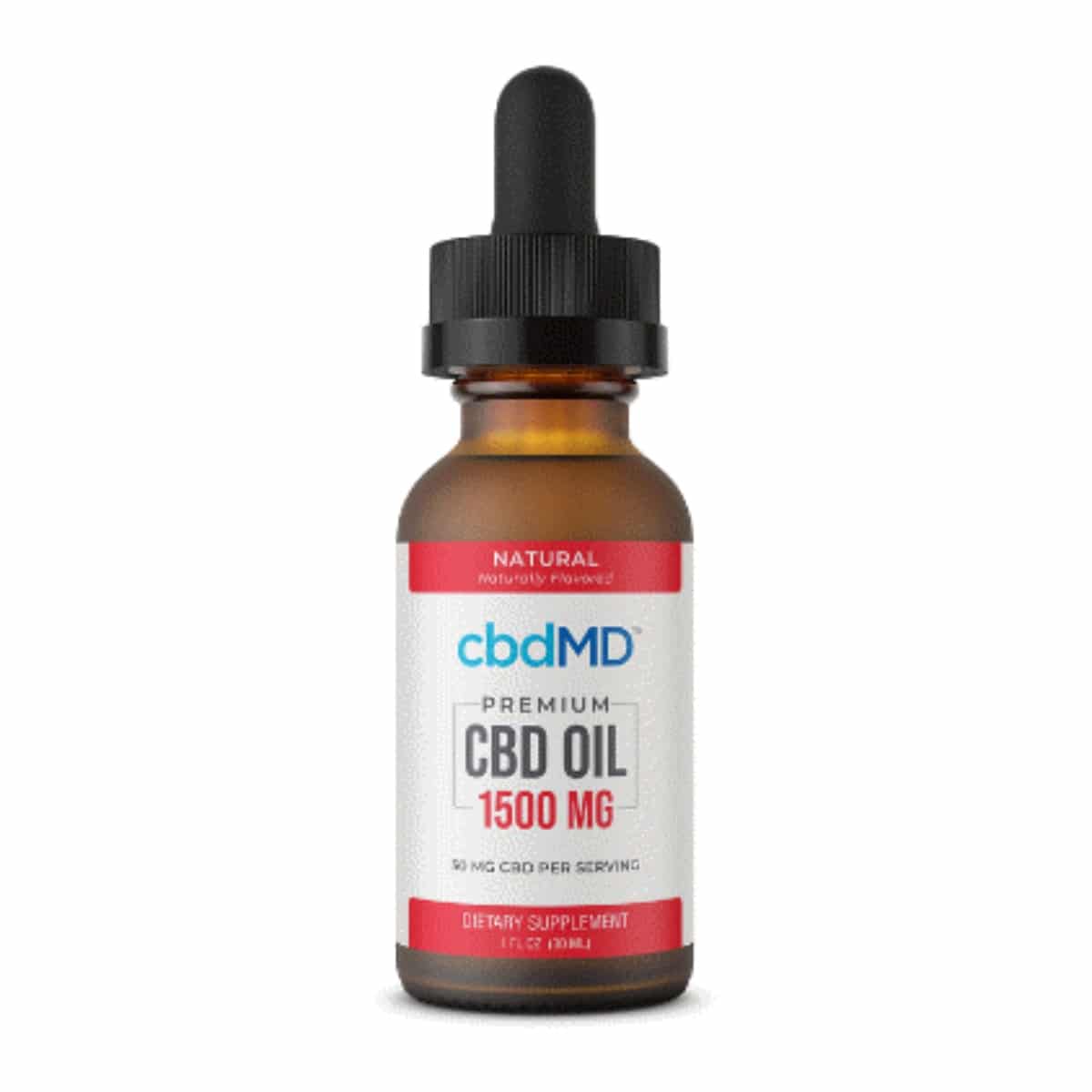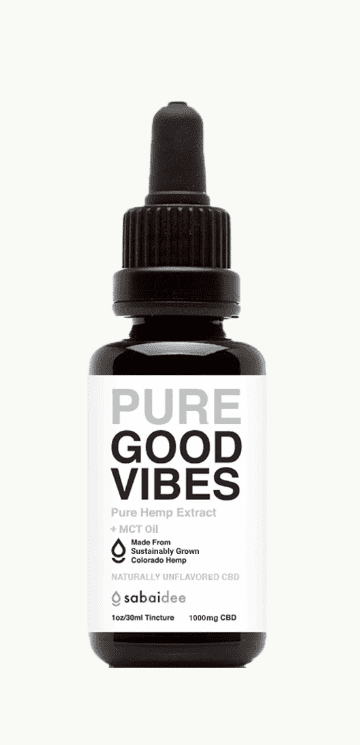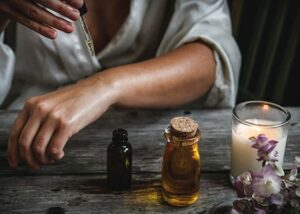Best CBD for Sleep
People of all ages need a good night’s sleep to stay healthy and ensure that the brain functions properly. CBD Clinicals reviewed different CBD products to help consumers find the best CBD oil for sleep based on different health needs.
Best CBD Oil for Sleep 2025
- cbdMD CBD PM Sleep Aid Editor's Choice
- NuLeaf Naturals 900mg Full Spectrum Hemp CBD Oil Best Organic
- Spruce 2400mg Lab Grade CBD Oil Editor's Pick
- cbdMD CBD Oil Tincture Natural 1500mg Best Natural Alternative
- Sabaidee Pure Good Vibes CBD Oil Easy to use
Compare the Best CBD Oil for Sleep in 2022
The Best CBD Oil for Sleep
1. cbdMD CBD PM Sleep Aid
cbdc overall score
4.4
CBDC Evaluation Table/Score
| Pros | Cons |
|---|---|
| Award-winning product | cbdMD uses MCT as its carrier oil so individuals who are allergic with coconuts should consider other brand options |
| Perfect nighttime companion | May cause drowsiness. Not advisable for heavy machine operators |
| Made from premium CBD from non-GMO USA hemp |
Overview
cbdMD’s CBD PM sleep aid combines the relaxing effects of CBD with the sleep-inducing qualities of melatonin and other natural ingredients. It helps consumers get a good night’s sleep. CBD PM is packaged with a rubber dropper and is applied sublingually. CBD PM is vegan and THC-free. It includes chamomile flower, cascade hops, and valerian root to help promote healthy sleep. These ingredients, combined with CBD and melatonin, help reduce tension and anxiety while preparing for bed. The product begins to take effect in about 30 minutes, making it perfect for taking just before lying down to sleep.
2. NuLeaf Naturals 900mg Full Spectrum Hemp CBD Oil
cbdc overall score
5.0
CBDC Evaluation Table/Score
| Pros | Cons |
|---|---|
| Pure CBD hemp | No other flavors |
| All natural | |
| Approximately 300 drops total |
Overview
Natural remedy for various illnesses. NuLeaf Naturals’ CBD oil is a whole-plant extract containing a full spectrum of naturally occurring synergistic cannabinoids and terpenes.
3. Spruce 2400mg Lab Grade CBD Oil
cbdc overall score
5.0
CBDC Evaluation Table/Score
| Pros | Cons |
|---|---|
| Extra Strength | Tastes bitter |
| No artificial flavoring or colors | No THC-free option |
| Made from 100% organic and natural ingredients |
Overview
The largest bottle of CBD oil that Spruce offers contains 2,400mg of CBD. This is full-spectrum CBD oil, which is the maximum possible potency. Each high potency dropper full contains 80mg of CBD. There are no flavorings in it, which allows for the most CBD to fit in the 30ml bottle.
4. cbdMD CBD Oil Tincture Natural 1500mg
cbdc overall score
4.7
CBDC Evaluation Table/Score
| Pros | Cons |
|---|---|
| Various delicious flavors to choose from | cbdMD uses MCT as its carrier oil so individuals who are allergic with coconuts should consider other brand options |
| Has vegan, organic, and gluten-free ingredients | |
| Free shipping for this particular product within USA | |
| World-class customer service team |
Overview
cbdMD’s CBD oil tinctures are made using only CBD sourced from medical hemp and MCT oil as a carrier oil. Tinctures are offered in orange, mint, natural, and berry flavors. Safe for daily use, the oil tinctures are packaged with a built-in rubber dropper to adjust CBD dosage easily. The packaging is made to be easy to transport and discreet to use.
5. Sabaidee Pure Good Vibes CBD Oil
cbdc overall score
4.4
CBDC Evaluation Table/Score
| Pros | Cons |
|---|---|
| Significant benefits with just a few drops | A little bit pricey compared to other brand of same specs |
| 100% Natural ingredients | |
| You can add this tincture to beverages like coffee, juice and or tea without bringing the minty flavor along. |
Overview
Pure Good Vibes is a natural and flavorless 1000mg broad-spectrum CBD tincture. Each dropper contains over 33.5mg of our high quality and broad-spectrum CBD oil, and many users report benefits with just a few drops.
Cannabidiol (CBD) is a nonpsychoactive phytocannabinoid (plant-based cannabinoid) naturally present in cannabis plants. Rather than altering thoughts, CBD may interact with the endocannabinoid system (ECS) to help increase sleep time and improve sleep quality(1).
The ECS plays a role in maintaining homeostasis in the body and ensuring that different internal systems work properly. The ECS has cannabinoid receptors throughout the body, with CB1 and CB2 receptors being the most common(2).
The receptors are how the ECS regulates daily bodily functions and processes, including pain sensation, stress or anxiety response, energy levels, mood, and sleep(3).
The human body produces endogenous cannabinoids (endocannabinoids), which can bind to ECS receptors and influence the body’s functionality(4).
Similarly, phytocannabinoids, such as CBD and tetrahydrocannabinol (THC), may influence cannabinoid receptors to trigger specific responses.
A study suggested that CBD binds with CB1 receptors in the ECS and modulates their response to certain stimuli(5). The researchers hypothesized that CBD may help treat medical conditions associated with the central nervous system, such as sleep disorders(6).
A 2020 review also noted that CB1 receptors may be involved in promoting sleep(7). Additionally, a study showed that activating CB1 receptors may induce sleep and modulate sleep generation(8).
CB1 receptors are mostly found in the central nervous system(9). They are particularly abundant in the hippocampus, cerebellum, and basal ganglia regions of the brain.
The basal forebrain is one of the seven parts of the brain involved with sleep. This portion of the brain promotes sleep and wakefulness through the release of adenosine, a chemical that supports sleep drive(10).
When activated, CB1 receptors influence cognitive functions, such as memory processing, movement, mood, and pain sensation(11). A study in PLOS One showed that activated CB1 receptors may also increase the stability of non-rapid eye movement (NREM) sleep(12).
NREM sleep has three stages, including the deepest sleep period necessary to feel refreshed upon waking up(13). NREM sleep is also sometimes referred to as dreamless sleep, as rapid eye movement (REM) sleep is the stage when dreams occur.
The researchers hypothesized that triggering CB1 receptors may be necessary for stable NREM sleep, though not for sleep homeostasis (the balance between sleep and wakefulness)(14).
Meanwhile, CB2 receptors are abundant in the immune system. These receptors affect immune cell functions and trigger anti-inflammatory responses(15).
Benefits of Using CBD for Sleep
A review that appeared in Current Psychiatry Reports suggested that CBD may offer therapeutic benefits for people with insomnia(16). The review also stated that CBD shows promise as a treatment for REM sleep behavior disorder and excessive daytime sleepiness.
Sufficient hours and good quality of sleep are vital for maintaining optimal physical and mental wellness. According to the US Centers for Disease Control and Prevention, adults need at least seven hours of sleep each day(17).
However, researchers from the University of Pennsylvania found that nearly 25% of Americans experienced acute insomnia per year(18).
Acute insomnia is characterized by difficulty falling or staying asleep multiple times a week for at least a fortnight.
Findings published in the Journal of Clinical Pharmacy and Therapeutics also acknowledged CBD’s potential in treating REM sleep behavior disorder (RBD) events.
The study noted that patients who were given daily doses of CBD exhibited a rapid and significant reduction in the recurrence of RBD events(19). Moreover, patients who stopped taking CBD saw a return of the frequency and intensity of their RBD symptoms.
Consumer Reports found that one-third of Americans who had sleep problems also used sleeping aids or pills(20). Over-the-counter (OTC) and prescription sleep medications may help with RBD and other sleep problems, though they do not always produce good results.
Almost six out of ten people who took sleep aids experienced drowsiness, confusion, and forgetfulness upon waking up the following day(21).
One study also suggested that OTC sleep aids may be linked to a 52% increased risk for stroke among middle-aged and older men and women(22).
In contrast, CBD is shown to be well tolerated, with study participants taking high CBD doses of up to 1,500 mg of CBD each day with no serious adverse effects observed(23).
According to a study published in Sleep Disorders, prescription sleep medications, like benzodiazepines or other hypnotic drugs, may also cause residual side effects(24).
These side effects include daytime sleepiness or drowsiness, oversleeping, difficulty concentrating, headaches, and even periods of amnesia.
A crossover trial done on insomnia patients compared the effects of CBD with nitrazepam, a hypnotic medication and type of benzodiazepine drug. The findings showed that a high dose of CBD (160mg) helped improve sleep duration significantly(25).
A clinical study also observed the effects of CBD on adult patients with anxiety and sleep disorders.
The results indicated that 48 out of 72 patients with sleep-related concerns saw an improvement in their sleep scores in the first month of the study(26). On average, the patients had sustained improvements over three months of CBD treatment.
Moreover, researchers hypothesized that using CBD to reduce sleep-interrupting symptoms, like pain, may improve sleep quality.
This hypothesis aligns with the findings of various studies regarding CBD’s promising therapeutic effects for pain and anxiety.
Studies suggested that CBD treatments may provide relief for patients with multiple sclerosis and other conditions that cause chronic pain(27). In particular, CBD was observed to reduce chronic pain by more than 30% in fibromyalgia patients.
Risks of Using CBD for Sleep
CBD remains a highly unregulated product in the United States despite being legal on the federal level.
Moreover, the US Food and Drug Administration (FDA) has not approved CBD as a treatment for any medical condition. The FDA has only approved one CBD-based drug, Epidiolex, for treating rare forms of epilepsy(28).
A study published in the journal Molecules in 2019 indicated that extremely high doses of Epidiolex (2,460mg/kg of a person’s body weight) may cause CBD-induced hepatoxicity or liver injury(29).
Other possible side effects of taking CBD are(30):
- Reduced appetite
- Dry mouth
- Diarrhea
- Tiredness or fatigue
- Drowsiness
- Weight loss or weight gain
Additionally, CBD may cause a contraindication or drug interaction with some medications consumers may be taking, such as blood thinners(31).
Despite its possible side effects, CBD still has a good safety profile, according to the World Health Organization(32).
Research on CBD use for sleep is also still inconclusive. Some studies suggested that CBD might cause relaxation and sleepiness, while other studies indicated that CBD may induce wakefulness(33-34).
Consumers are advised to conduct thorough research before buying any CBD product to avoid purchasing counterfeit or unsafe CBD items.
Additionally, it is better to consult a healthcare professional before buying or using any CBD product.
Buying top-quality CBD oil may help prevent unwanted adverse effects.
How Soon Can CBD’s Effects Be Felt
The chosen delivery method or way of taking CBD affects how fast patients may feel the product’s effects.
Moreover, different products’ potencies and carrier oils may also affect CBD bioavailability. Bioavailability is the speed and amount of the drug that gets absorbed into the bloodstream.
People with sleep problems may feel the effects of CBD within an hour of eating a CBD gummy. The effects of a CBD gummy may last between six to twelve hours(35).
Vaping offers the fastest CBD bioavailability, with users starting to feel the effects of CBD within minutes. However, the effects may begin to subside in two to three hours(36).
Additionally, studies suggest that vaping may cause lung issues or respiratory illnesses(37).
Users that let CBD sit under their tongue may feel its effects in as fast as 15 minutes, with the effects lasting up to eight hours(38).
Findings indicated that patients with sleep problems reported improved sleep within one month of taking CBD(39).
The researchers also noted that improved sleep scores were observed throughout the three months of CBD treatment(40).
However, sustained improvement and better results were observed only while the patients continued to take CBD. The patients who discontinued CBD treatments due to fatigue and mild side effects also stopped experiencing better sleep quality(41).
CBD Dosage for Sleep
A study in The Permanente Journal indicated that dosages of 25mg to 75mg of CBD per day may help improve sleep quality(42).
Researchers also noted that a participant who had schizoaffective disorder and a trauma history was given a 175mg per day dosage of CBD for better sleep(43).
A different study showed that high doses of CBD helped improve insomnia. The study reported increased sleep duration in participants treated with 160mg of CBD per day(44).
Consumers should note that no official dosage guidelines or recommendations have been released by the FDA or any official organization.
The general rule for first-time CBD users is to start with a lower concentration and dosage of CBD and slowly increase the dosage until the desired effects are achieved.
Most CBD companies also give their dosage recommendations for each product.
However, it is better to talk with a physician familiar with CBD for a more precise dosage that accounts for other existing conditions and current medications.
How to Take CBD for Sleep
CBD oils and tinctures usually come with a marked dropper to make dosage measurement easier and more accurate.
First-time consumers who find it hard to adjust to the grassy taste of unflavored CBD oil tinctures may go with flavored CBD oil. Popular CBD flavors are peppermint and citrus flavors.
Some CBD tinctures or oils may be used as substitutes for vape oils. Take note that CBD oils that use medium-chain triglyceride (MCT) or fractionated coconut oil as the carrier oil are not ideal for vaping.
According to a study, burning and inhaling MCT oil may cause inflammation and acute lung injury(45).
Sublingual intake, or holding the CBD oil under the tongue for at least 30 seconds before swallowing, is a popular way of taking CBD oil.
CBD is also available in edible forms, such as CBD gummies, CBD-infused chocolates, and CBD candies. Many CBD brands also formulate their sleep CBD products in gummy form.
Consumers may also use CBD in topical form. A study suggested that topical CBD products are ideal for targeted or site-specific relief of swollen and painful joints(46).
When to Take CBD for Sleep
Researchers noted that using CBD for sleep after dinner may help reduce sleep concerns and improve sleep quality(47). Some CBD brands recommend taking CBD gummies around 30 minutes before going to bed.
The same study noted that giving CBD to patients in the morning also aided in improving anxiety levels(48).
Findings published in 2019 hypothesized that the oral ingestion of CBD oil and CBD products after a meal may improve CBD bioavailability(49).
Where to Buy CBD for Sleep
Consumers may purchase CBD products at physical stores or online through company brand websites and third-party retailers.
Federal law allows the transport of hemp and hemp-derived products across state lines(50). However, consumers are advised to still check the state laws of where they live to avoid complications.
People interested in buying hemp oil with more than 0.3% THC content may visit licensed medical cannabis dispensaries.
High-THC hemp extracts are more accurately called cannabis oil.
Unlike hemp CBD oil, cannabis oil is only available to qualified patients with debilitating medical conditions, such as epilepsy, cancer, and multiple sclerosis(51).
Moreover, purchasing medical cannabis may require a medical cannabis ID card, a physician’s recommendation, or both(52).
How to Buy the Best CBD Oils for Sleep
CBD comes in three different types: full-spectrum CBD, broad-spectrum CBD, and CBD isolates.
Full-spectrum hemp extracts and CBD oils contain a complete range of phytocannabinoids present in cannabis plants, including CBD, THC, terpenes, flavonoids, and fatty acids.
Terpenes are aromatic compounds that may induce relaxation and therapeutic relief(53). Flavonoids are phytonutrients or plant chemicals that may offer antioxidant and anti-inflammatory benefits(54).
When taken together, all the compounds produce the entourage effect, wherein the compounds work in synergy to enhance their individual therapeutic benefits.
The entourage effect means that the individual takes in all the purported benefits of the cannabinoids.
Full-spectrum CBD oil suits consumers who want to get the maximum therapeutic benefits of CBD.
Broad-spectrum CBD extracts are ideal for consumers that want the advantage of all phytocannabinoids without the THC content.
Meanwhile, CBD isolates are made of pure CBD and also completely THC-free.
The extraction method may also affect CBD product quality.
The supercritical CO2 extraction process is considered a safe method to ensure the extraction of potent, chlorophyll-free, and high-quality CBD(55).
Other safe extraction methods include solvent or ethanol extraction and olive oil CBD extraction(56).
The following tips can help ensure the purchase of high-quality products:
- Trustworthy brands ensure their products undergo third-party testing and make the lab test results readily available to consumers.
- It is advisable to learn how to read third-party lab testing reports or certificates of analysis (COAs) to make sure the information on the labels and lab results match.
- Make sure the products are tested for harmful contaminants, such as residual solvents, heavy metals, pesticides, and toxins.
- If possible, choose products that are made from organic hemp, non-genetically modified organisms (non-GMO). Ideally, they should also contain all-natural ingredients. Vegan and gluten-free CBD oil are also good options for consumers with allergies.
- Look for products that come with a 15- or 30-day money-back guarantee. Brands that give such guarantees are more likely to be offering quality CBD oil and products.
It is best to research each product extensively and read up on customer reviews to understand how the product works and the recommended dose.
Examples of companies that have built a reputation as reliable and transparent CBD brands are NuLeaf Naturals, Medterra, and Charlotte’s Web.
High-quality CBD gummies for sleep may start at $30 for a container of 30 gummies, while a 30ml bottle of CBD oil for sleep may start at $35 and go up to over $100, depending on the CBD potency.
Legality of CBD
The 2018 Farm Bill’s passage legalized industrial hemp and hemp-derived products, like CBD oil and hemp extracts, on a federal level in the USA(57).
Before the 2018 Farm Bill, industrial hemp plants and marijuana plants are classified as illegal Schedule I drugs(58). The bill redefined hemp plants and removed them from the Schedule I drugs category.
Schedule I drugs have a high potential for abuse and no approved medical use(59).
Under the 2018 Farm Bill, Cannabis sativa plants are considered industrial hemp plants and federally legal as long as they contain less than 0.3% THC on a dry weight basis(60).
THC is the major psychoactive component found in cannabis plants. It is the compound in marijuana that gets people high.
Taking large doses of THC may lead to hallucinations, delusions, and heightened sensory perceptions. Prolonged use of THC may also cause psychotic disorders, such as schizophrenia(61).
High-THC medical cannabis may only be available to patients with qualifying medical conditions. These patients may also need to get a medical marijuana card or a physician’s written recommendation to receive medical cannabis(62).
Federal law allows the transport of CBD across state lines, provided that the product is lawfully produced or licensed(63).
However, state governments may still impose laws and regulations regarding CBD use that may supersede the federal mandate, at least within the state.
For instance, New York does not allow the sale of CBD food and drinks infused with CBD(64). However, proposed state regulations seek to amend this rule.
Meanwhile, Colorado limits the purchase of CBD products that are also age-restricted commodities, such as CBD-infused alcoholic beverages(65).
Like South Dakota, there are also states that still consider CBD oil, hemp plants, and other hemp-derived products completely illegal(66).
Product Frequently
Asked Questions
-
How can CBD help with sleep?
CBD may help with sleep by interacting with the receptors of the endocannabinoid system (ECS), which regulates daily bodily functions, such as pain response, anxiety, and the sleep cycle.
ECS receptors are located throughout the body, including the parts of the brain that promote sleep and wakefulness.
-
What does research say about CBD for sleep?
Research showed that CBD may promote better quality sleep in patients with insomnia(67).
Findings also suggested that CBD may offer therapeutic relief for excessive daytime sleepiness and help lessen the occurrence of rapid eye movement (REM) sleep behavior disorder events.
-
Is there any evidence that CBD can make sleep problems worse?
Research on CBD’s effectiveness for sleep remains inconclusive. Some studies support the hypothesis that CBD may induce wakefulness(68). Other findings suggested that CBD may induce relaxation and sleepiness(69).
A review of CBD sleep studies notes that low-dose CBD may promote wakefulness, while high-dose CBD may help reduce the frequency of waking up at night(70).
-
Will CBD interact with any current medication I may be taking for sleep?
Although legal on the federal level, CBD remains highly unregulated and not approved as a drug treatment.
It is not advisable to use CBD together with other current medications, as it may interact with other drugs, such as blood thinners.
-
Will taking CBD oil for sleep make me groggy when I wake up?
Low-dose CBD helps promote relaxation to induce sleep, rather than acting as a strong sedative(71).
While drowsiness is a possible side effect of CBD, studies suggested that a low CBD dosage is unlikely to cause daytime sleepiness or grogginess(72).
-
Are there other treatments I should consider alongside CBD to help with sleep?
Over-the-counter (OTC) and prescription sleep aids may also help with promoting better sleep, though the medications may cause users to feel drowsy, forgetful, and confused(73).
People may also consider taking herbal or dietary supplements (like melatonin), using essential oils (like chamomile), avoiding caffeine at night, and getting regular exercise during the day.
-
Can I fail a drug test if I use CBD for sleep?
Frequent use and high doses of full-spectrum CBD products with trace amounts of THC may cause a false-positive drug test result.
-
What is the CBD dosage for sleep?
There are no official CBD dosage recommendations or guidelines for sleep. However, studies noted that higher doses may help improve REM sleep(74).
You can begin with a low dosage and increase it as necessary.
-
When should you take CBD for sleep?
Using CBD at night may help induce relaxation and sleep more quickly. Take note that different CBD delivery methods take effect at varying times.
- Babson, K.A., Sottile, J. & Morabito, D. (2017, Mar. 23). Cannabis, Cannabinoids, and Sleep: a Review of the Literature. Curr Psychiatry Rep 19(23). https://www.med.upenn.edu/cbti/assets/user-content/documents/s11920-017-0775-9.pdf
- Lu, H. C., & Mackie, K. (2016). An Introduction to the Endogenous Cannabinoid System. Biological psychiatry, 79(7), 516–525. https://www.ncbi.nlm.nih.gov/pmc/articles/PMC4789136/
- ECHO. (2017, April 18). A Look at the Endocannabinoid System’s CB1 and CB2 Receptors. Retrieved from https://echoconnection.org/look-endocannabinoid-systems-cb1-cb2-receptors/
- Ibid.
- Laprairie, R. B., Bagher, A. M., Kelly, M. E., & Denovan-Wright, E. M. (2015). Cannabidiol is a negative allosteric modulator of the cannabinoid CB1 receptor. British journal of pharmacology, 172(20), 4790–4805. https://doi.org/10.1111/bph.13250
- Ibid.
- Kesner, J. A., & Lovinger, D. M. (2020, July 22). Cannabinoids, Endocannabinoids and Sleep. Frontiers in molecular neuroscience. https://doi.org/10.3389/fnmol.2020.00125
- Murillo-Rodriguez, E. (2008, April 10). The Role of the CB1 Receptor in the Regulation of Sleep. Progress in neuro-psychopharmacology and biological psychiatry, 32(6), 1420-1427. https://doi.org/10.1016/j.pnpbp.2008.04.008
- Lu, H. C., & Mackie, K. (2016). Op. cit.
- National Institute of Neurological Disorders and Stroke. (2019, Aug. 13). Brain Basics: Understanding Sleep. Retrieved from https://www.ninds.nih.gov/disorders/patient-caregiver-education/understanding-sleep
- ECHO. (2017, April 18). Op. cit.
- Pava, M. J., Makriyannis, A., & Lovinger, D. M. (2016). Endocannabinoid Signaling Regulates Sleep Stability. PloS one, 11(3), e0152473. https://doi.org/10.1371/journal.pone.0152473
- National Institute of Neurological Disorders and Stroke. (2019, Aug. 13). Op. cit.
- Pava, M. J., Makriyannis, A., & Lovinger, D. M. (2016). Op. cit.
- Turcotte, C., Blanchet, M. R., Laviolette, M., & Flamand, N. (2016). The CB2 receptor and its role as a regulator of inflammation. Cellular and molecular life sciences : CMLS, 73(23), 4449–4470. https://doi.org/10.1007/s00018-016-2300-4
- Babson, K.A., Sottile, J. & Morabito, D. (2017, Mar. 23). Op. cit.
- Liu Y., Wheaton A. G., Chapman D. P., Cunningham T. J., Lu H., & Croft J. B. (2016, Feb. 19). Prevalence of Healthy Sleep Duration among Adults — United States, 2014. MMWR Morb Mortal Wkly Rep 65, 137–141. http://dx.doi.org/10.15585/mmwr.mm6506a1
- University of Pennsylvania School of Medicine. (2018, June 5). One in four Americans develop insomnia each year: 75 percent of those with insomnia recover. ScienceDaily. Retrieved December 10, 2020 from www.sciencedaily.com/releases/2018/06/180605154114.htm
- Chagas, M. H., Eckeli, A. L., Zuardi, A. W., Pena-Pereira, M. A., Sobreira-Neto, M. A., Sobreira, E. T., Camilo, M. R., Bergamaschi, M. M., Schenck, C. H., Hallak, J. E., Tumas, V., & Crippa, J. A. (2014). Cannabidiol can improve complex sleep-related behaviours associated with rapid eye movement sleep behaviour disorder in Parkinson’s disease patients: a case series. Journal of clinical pharmacy and therapeutics, 39(5), 564–566. https://doi.org/10.1111/jcpt.12179
- Carr, Teresa. (2018, Dec. 12). The Problem With Sleeping Pills. Consumer Reports. Retrieved from https://www.consumerreports.org/drugs/the-problem-with-sleeping-pills/
- Ibid.
- Petrov, M. E., Howard, V. J., Kleindorfer, D., Grandner, M. A., Molano, J. R., & Howard, G. (2014). Over-the-counter and prescription sleep medication and incident stroke: the REasons for Geographic and Racial Differences in Stroke study. Journal of stroke and cerebrovascular diseases : the official journal of National Stroke Association, 23(8), 2110–2116. https://doi.org/10.1016/j.jstrokecerebrovasdis.2014.03.025
- Iffland, K., & Grotenhermen, F. (2017). An Update on Safety and Side Effects of Cannabidiol: A Review of Clinical Data and Relevant Animal Studies. Cannabis and cannabinoid research, 2(1), 139–154. https://doi.org/10.1089/can.2016.0034
- Fitzgerald, T., & Vietri, J. (2015). Residual Effects of Sleep Medications Are Commonly Reported and Associated with Impaired Patient-Reported Outcomes among Insomnia Patients in the United States. Sleep disorders, 2015, 607148. https://doi.org/10.1155/2015/607148
- Zhornitsky, S., & Potvin, S. (2012). Cannabidiol in humans-the quest for therapeutic targets. Pharmaceuticals (Basel, Switzerland), 5(5), 529–552. https://doi.org/10.3390/ph5050529
- Shannon, S., Lewis, N., Lee, H., & Hughes, S. (2019). Cannabidiol in Anxiety and Sleep: A Large Case Series. The Permanente journal, 23, 18–041. https://doi.org/10.7812/TPP/18-041
- Argueta, D. A., Ventura, C. M., Kiven, S., Sagi, V., & Gupta, K. (2020). A Balanced Approach for Cannabidiol Use in Chronic Pain. Frontiers in pharmacology, 11, 561. https://doi.org/10.3389/fphar.2020.00561
- U.S. Food and Drug Administration. (2018, March 27). FDA Approves First Drug Comprised of an Active Ingredient Derived from Marijuana to Treat Rare, Severe Forms of Epilepsy. Retrieved from https://www.fda.gov/news-events/press-announcements/fda-approves-first-drug-comprised-active-ingredient-derived-marijuana-treat-rare-severe-forms
- Ewing, L. E., Skinner, C. M., Quick, C. M., Kennon-McGill, S., McGill, M. R., Walker, L. A., ElSohly, M. A., Gurley, B. J., & Koturbash, I. (2019). Hepatotoxicity of a Cannabidiol-Rich Cannabis Extract in the Mouse Model. Molecules (Basel, Switzerland), 24(9), 1694. https://doi.org/10.3390/molecules24091694
- Bauer, B. A. (2018, Dec. 20). What are the benefits of CBD — and is it safe to use? Retrieved from https://www.mayoclinic.org/healthy-lifestyle/consumer-health/expert-answers/is-cbd-safe-and-effective/faq-20446700
- Ibid.
- World Health Organization (2018, June). Cannabidiol (CBD) Critical Review Report. Retrieved from https://www.who.int/medicines/access/controlled-substances/WHOCBDReportMay2018-2.pdf
- Nicholson, A. N., Turner, C., Stone, B. M., & Robson, P. J. (2004). Effect of Delta-9-tetrahydrocannabinol and cannabidiol on nocturnal sleep and early-morning behavior in young adults. Journal of clinical psychopharmacology, 24(3), 305–313. https://doi.org/10.1097/01.jcp.0000125688.05091.8f
- Babson, K.A., Sottile, J. & Morabito, D. (2017, Mar. 23). Op. cit.
- Devitt-Lee, A. How to use CBD & Cannabis. Project CBD. Retrieved from https://www.projectcbd.org/how-to/use-cbd-and-cannabis
- Ibid.
- Stanbrook M. B. (2019). Vaping-associated lung illnesses highlight risks to all users of electronic cigarettes. CMAJ : Canadian Medical Association journal = journal de l’Association medicale canadienne, 191(48), E1319–E1320. https://doi.org/10.1503/cmaj.191503
- Devitt-Lee, A. How to use CBD & Cannabis. Op. cit.
- Shannon, S., Lewis, N., Lee, H., & Hughes, S. (2019). Op. cit.
- Ibid.
- Ibid.
- Ibid.
- Ibid.
- Zhornitsky, S., & Potvin, S. (2012). Op. cit.
- Muthumalage, T., Lucas, J., Wang, Q., Lamb, T., McGraw, M., & Rahman, I. (2020). Pulmonary toxicity and inflammatory response of e-cigarette vape cartridges containing medium-chain triglycerides oil and vitamin e acetate: Implications in the pathogenesis of EVALI. Toxics, 8(46). 10.3390/toxics8030046
- Hammell, D. C., Zhang, L. P., Ma, F., Abshire, S. M., McIlwrath, S. L., Stinchcomb, A. L., & Westlund, K. N. (2016). Transdermal cannabidiol reduces inflammation and pain-related behaviours in a rat model of arthritis. European journal of pain (London, England), 20(6), 936–948. https://doi.org/10.1002/ejp.818
- Shannon, S., Lewis, N., Lee, H., & Hughes, S. (2019). Op. cit.
- Ibid.
- Birnbaum, A. K., Karanam, A., Marino, S. E., Barkley, C. M., Remmel, R. P., Roslawski, M., Gramling-Aden, M., & Leppik, I. E. (2019). Food effect on pharmacokinetics of cannabidiol oral capsules in adult patients with refractory epilepsy. Epilepsia, 60(8), 1586–1592. https://doi.org/10.1111/epi.16093
- United States Department of Agriculture. (2019, May 28). Memorandum. Retrieved from https://www.ams.usda.gov/sites/default/files/HempExecSumandLegalOpinion.pdf
- National Conference of State Legislatures. (2020, Nov. 10). State Medical Marijuana Laws. Retrieved from https://www.ncsl.org/research/health/state-medical-marijuana-laws.aspx
- Ibid.
- Ferber, S.G., Namdar, D., Hen-Shoval, D., Eger, G., Koltai, H., Shoval, G., Shbiro, L., Weller, A. (2020). The “Entourage Effect”: Terpenes Coupled with Cannabinoids for the Treatment of Mood Disorders and Anxiety Disorders. PubMed Central (PMC). https://www.ncbi.nlm.nih.gov/pmc/articles/PMC7324885/
- Panche, A. N., Diwan, A. D., & Chandra, S. R. (2016). Flavonoids: an overview. Journal of nutritional science, 5, e47. https://doi.org/10.1017/jns.2016.41
- Project CBD. How CBD oil is made. Retrieved from https://www.projectcbd.org/cbd-101/how-is-cbd-oil-made
- Ibid.
- Congress.gov. H.R. 2 – Agricultural Improvement Act of 2018. Retrieved from https://www.congress.gov/bill/115th-congress/house-bill/2/text
- Comprehensive Drug Abuse Prevention and Control Act of 1970. FindLaw. 2019 February 4. Retrieved from https://criminal.findlaw.com/criminal-charges/comprehensive-drug-abuse-prevention-and-control-act-of-1970.htm
- United States Drug Enforcement Administration. Drug Scheduling. Retrieved from https://www.dea.gov/drug-scheduling
- Congress.gov. H.R. 2 – Agricultural Improvement Act of 2018. Op. cit.
- National Institute on Drug Abuse. (2020, July). What are marijuana’s effects? Retrieved from https://www.drugabuse.gov/publications/research-reports/marijuana/what-are-marijuana-effects
- National Conference of State Legislatures. (2020, Nov. 10). Op. cit.
- United States Department of Agriculture. (2019, May 28). Op. cit.
- New York State Governor. (2020, Oct. 28). Governor Cuomo Announces Proposed Regulations for Cannabinoid Hemp Products. https://www.governor.ny.gov/news/governor-cuomo-announces-proposed-regulations-cannabinoid-hemp-products
- Colorado Department of Public Health and Environment. Hemp in food. Retrieved from https://cdphe.colorado.gov/hemp-food
- South Dakota Office of the Attorney General. (2019, March 25). Attorney General Ravnsborg Clarifies Questions Regarding Industrial Hemp and CBD (Cannabidiol) Oil. https://atg.sd.gov/OurOffice/Media/pressreleasesdetail.aspx?id=2167
- Babson, K.A., Sottile, J. & Morabito, D. (2017, Mar. 23). Op. cit.
- Murillo-Rodríguez, E., Sarro-Ramírez, A., Sánchez, D., Mijangos-Moreno, S., Tejeda-Padrón, A., Poot-Aké, A., Guzmán, K., Pacheco-Pantoja, E., & Arias-Carrión, O. (2014). Potential effects of cannabidiol as a wake-promoting agent. Current neuropharmacology, 12(3), 269–272. https://doi.org/10.2174/1570159X11666131204235805
- Babson, K.A., Sottile, J. & Morabito, D. (2017, Mar. 23). Op. cit.
- Ibid.
- Ibid.
- Ibid.
- Carr, Teresa. (2018, Dec. 12). Op. cit.
- Zhornitsky, S., & Potvin, S. (2012). Op. cit.


